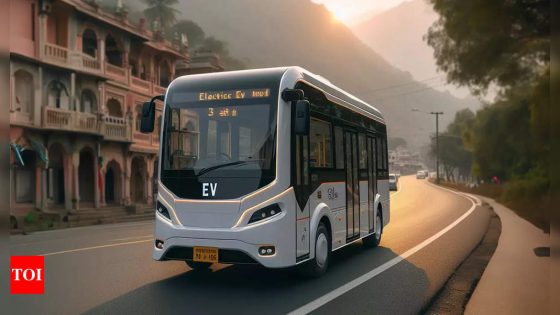Currently running on diesel, a shift to electric buses will significantly contribute to reducing emissions.
A senior government official told ET’s Twesh Mishra, “Viability of electric buses over long routes has been established for up to eight-nine hours of continuous travel,” and added that incentives are being considered to encourage the adoption of such buses.
While electric buses supported under the FAME India subsidy scheme are currently used for city transport, the government may launch a similar support scheme or extend the existing one for interstate transport infrastructure.
Love For Electric Buses
To further support the electric mobility push, more charging infrastructure will be established along highways, including fast chargers on key routes connecting large urban centres.
The official explained, “Unlike four-wheelers (such as cars), larger and heavier batteries can be installed in electric buses to facilitate long-distance transport (as they last longer between charging). There will also be scaling up of fast-charging infrastructure along key routes to address range-anxiety concerns.”
The government will soon develop a road map for supporting the purchase of electric buses by state governments for long-distance operations. Additionally, measures to encourage private bus fleet operators and institutional buyers like schools and colleges to switch to electric mobility are being considered.
The official said, “School buses run for hardly four hours in a day over controlled distances within cities. They should also be encouraged to switch to electric. Sops are being considered for encouraging more private players to adopt e-buses.”
Source Agencies



